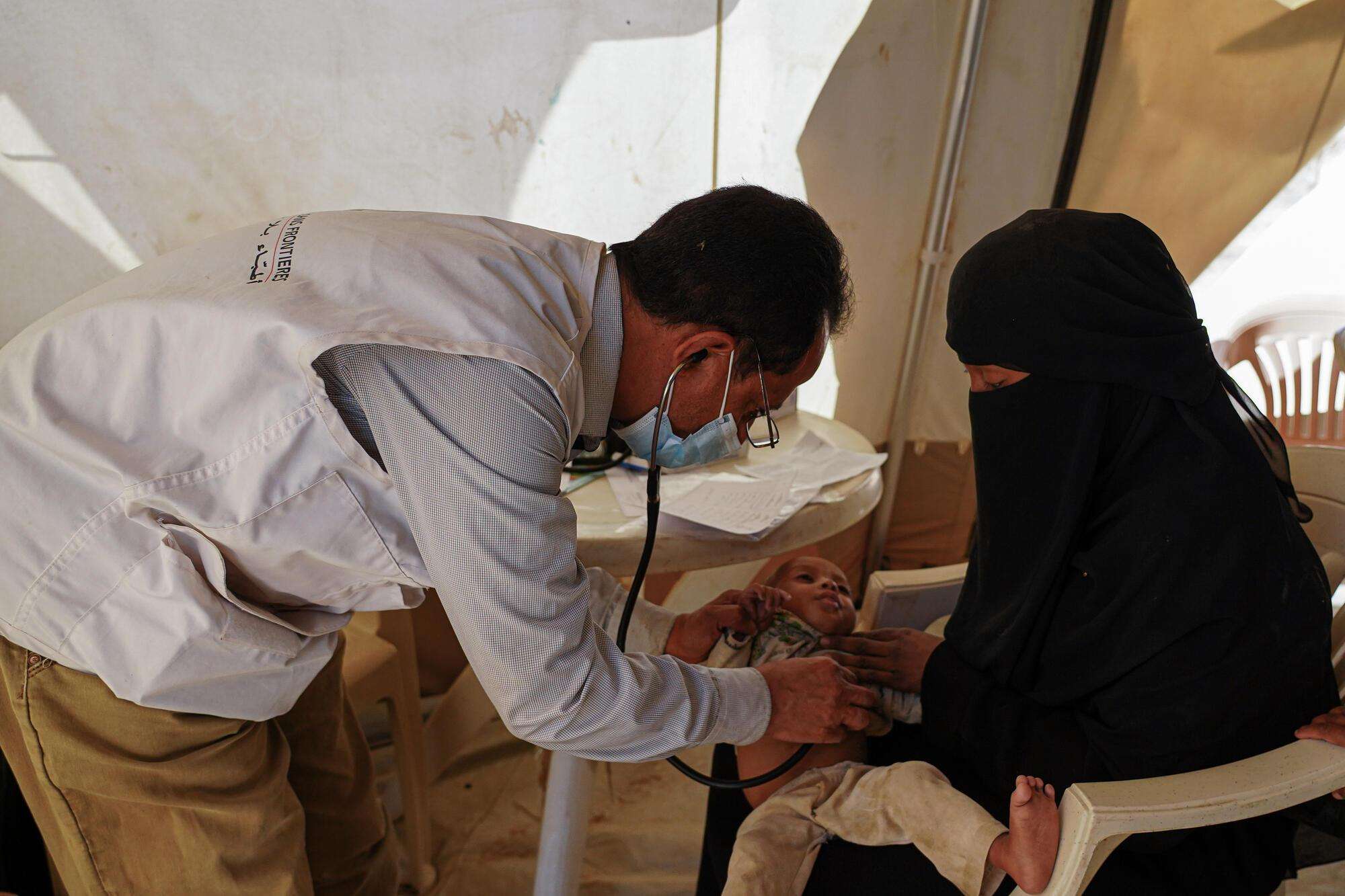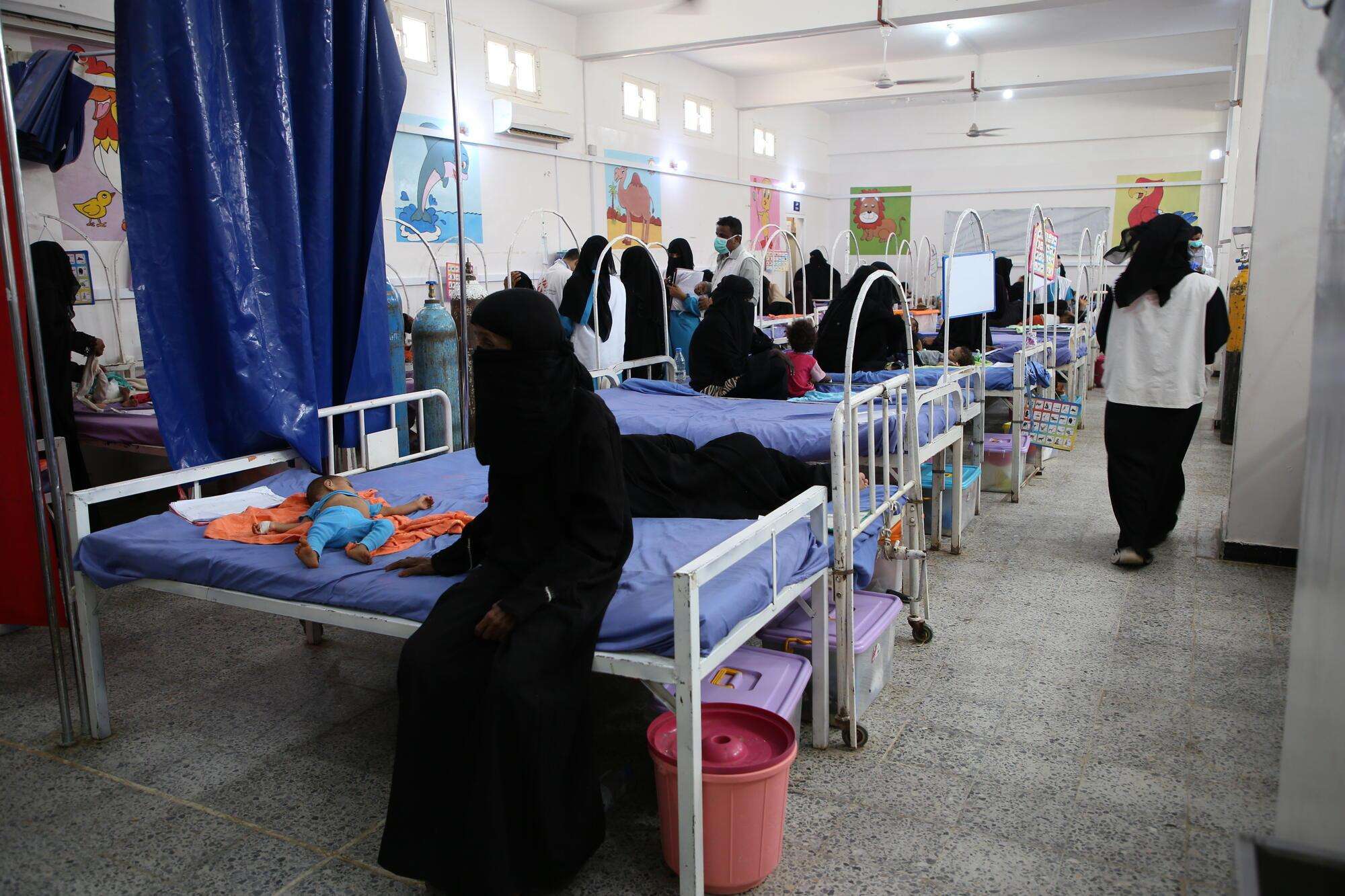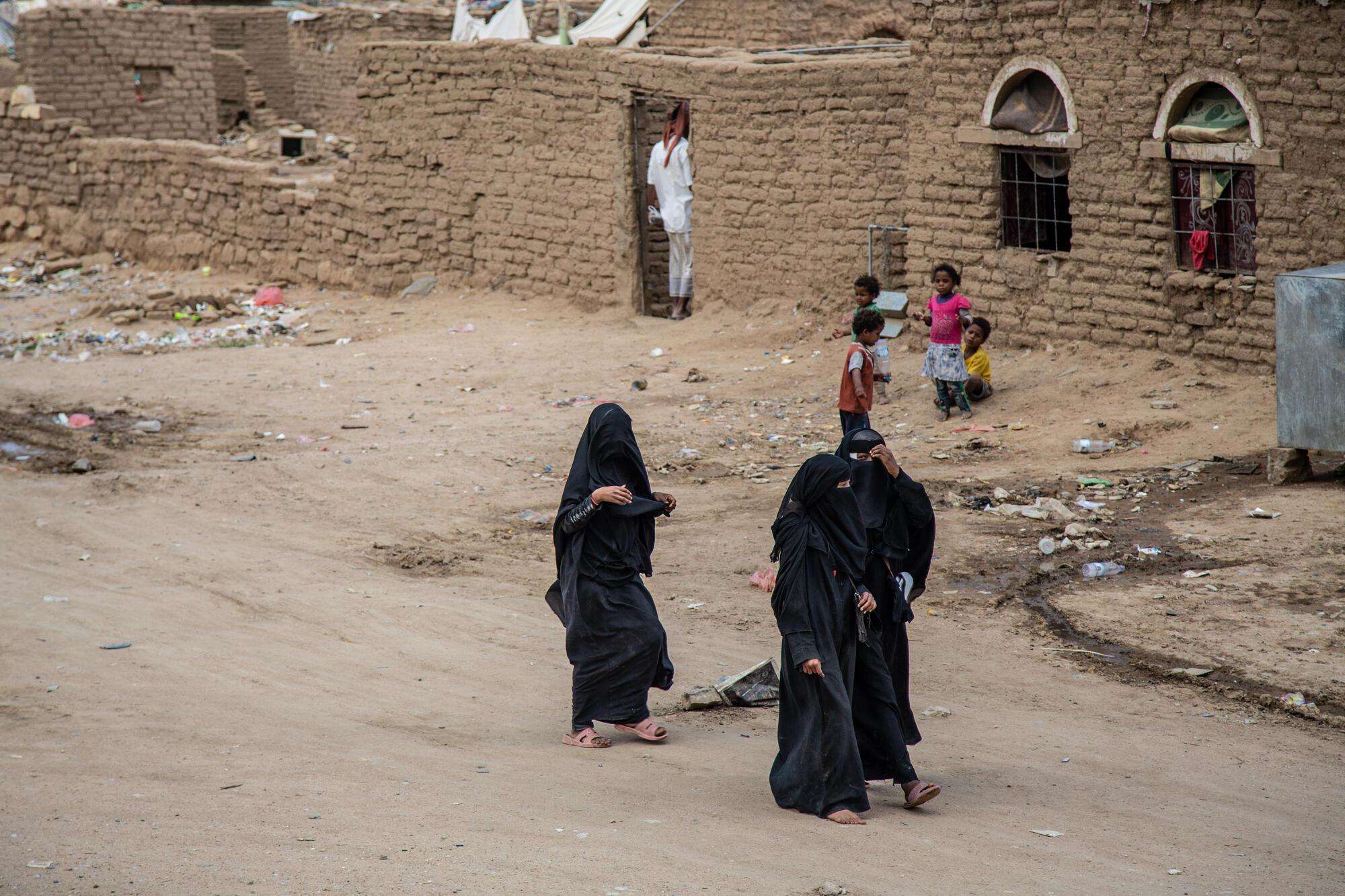Violence in Yemen’s Marib governorate is intensifying as warring parties fight to claim control over the strategically important region. According to local authorities, the population of Marib city, which was once less than half a million, has swelled to nearly three million as people are displaced by the fighting. Most who fled their homes are now totally reliant on humanitarian assistance, though it does not always reach them.
In response to the crisis, Doctors Without Borders/Médecins Sans Frontières (MSF) is providing basic medical services through eight mobile clinics and a primary health care center. We have been receiving an increasing number of patients, especially children, suffering from diseases related to poor sanitation and harsh living conditions. In the three months from October to December 2021, MSF teams saw a 44 percent increase in patients from the previous three months; 66 percent of them children. There was also an 11 percent increase in the number of malnutrition cases.
“We don’t have blankets to cover ourselves,” said Aafia, one of several thousand internally displaced people (IDP) sheltering in Marib governorate. “My children have no warm clothes and I don’t have enough food to feed them. I don’t have a house made of bricks; it’s only a tent, which doesn’t even stop the wind during cold winter nights. I don’t complain though. A complaint to anyone other than God is a humiliation.”
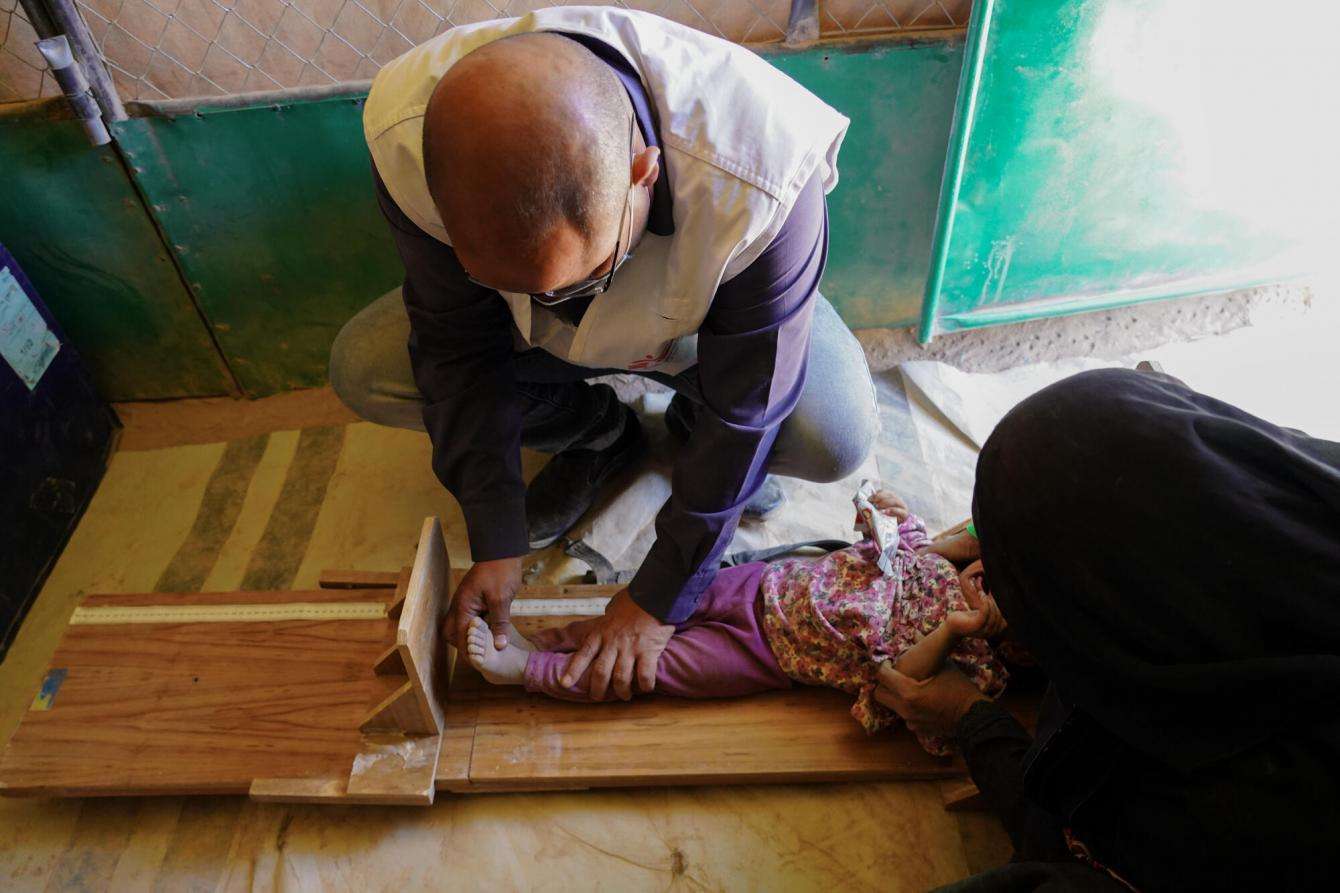
Deteriorating conditions
Many people migrated to Marib over the course of Yemen’s grinding seven-year conflict because it was previously considered the safest place in the country, with recent developments in infrastructure and increased economic opportunities. With the escalation of fighting, however, the situation in Marib has drastically deteriorated.
In 2021, multiple violent attacks in the region resulted in mass casualties and displacement. More than 78,000 people were displaced within or to Marib governorate last year, some 60,000 since September alone, according to estimates from the International Organization for Migration (IOM). About 150 formal and informal sites, both large and small, host thousands of families from across the country who were displaced by the conflict. An even greater number of displaced people are staying in the homes of local people.
Intense fighting continues on the city’s outskirts, causing yet more people to be displaced from their homes and posing a constant threat to those who arrived in search of safety.
Inadequate aid response
Abdu Sabit is one of many people waiting for humanitarian assistance to arrive. He has no means of earning money to support his extended family of 31 people, who share two small tents in Marib’s Al-Khuseif site.
“We only take tea and bread all day long,” said Abdu, who is originally from Taiz and has been displaced twice already. “It has been a month since I and my family had a proper meal. We would take anything given to us as help.”

“Marib’s humanitarian crisis could result in a health crisis,” said MSF medical coordinator Dr. Muhammad Shoaib. “The consequences of people’s living conditions on their physical and psychological well-being are already alarming. There is a high risk of disease outbreaks including measles, cholera and COVID-19. Health and humanitarian organizations need to act proactively to prevent a catastrophic health situation. Organizations working in Marib must increase their activities with regards to food, water and sanitation, shelter and health care.”
Many of the people living in the camps lack basic necessities including shelter materials, blankets, clean water, and sanitation. Most of the temporary shelters have been constructed from bushes and branches plucked from the desert, or from plastic sheets or other fragile materials salvaged from garbage dumps. Access to safe drinking water is very limited, which is a major health risk.
Winter in the desert of Marib is merciless, with strong cold winds and temperatures falling below 50°F. Without mattresses or blankets, many people struggle to keep warm. Some have built walls of sandbags to try and prevent the cold wind from entering their homes.
The emotional weight of it all has dire mental health consequences as well. “We really feel afraid, day and night,” said Abdu, whose family is sheltering just a few miles from the frontline. “Usually, there is a break of an hour or so and then we start hearing fighting again. I am not worried for myself, but for the children in my family. If there is a situation when we feel the explosions are coming closer, we will just take some water and run. I don’t know where we’d go—we would just run away.”
Conflict exacerbates risks for already vulnerable people
The effects of the conflict are having a particular impact on two of the area’s most vulnerable groups: African migrants and the Muhamasheen community [literally “the marginalized ones,” a minority ethnic group that frequently faces discrimination and lives in deep poverty]. Even when the front line shifts, putting their lives at risk, these people often lack the capacity and resources to move to safety.
The arrival of newly displaced people in the area is stressing supplies of food, shelter, water, sanitation and other basic necessities. The humanitarian assistance available is insufficient for people’s needs, and many migrants have seen their aid reduced or shared with other vulnerable groups.
“We are 40 women living in one tent,” said 20-year-old Arkani, one of hundreds of migrants from Ethiopia currently stuck in Yemen during their quest to cross the border into Saudi Arabia. “We need something to eat, something to drink, and something to wear. We don’t have warm clothes, blankets, or sheets to survive the cold weather. We are a big number of people and the food is not enough for all of us.”
The conflict and its consequences have also brought more misery to the Muhamasheen, a large number of whom now live in Marib, where they came to escape conflict and find economic opportunities.
“Food, shelter, and water—that is it,” said Ahmad, a member of the Muhamasheen. “We don’t want to have a big house or buy land. All we need is food, shelter, and blankets in winter.”
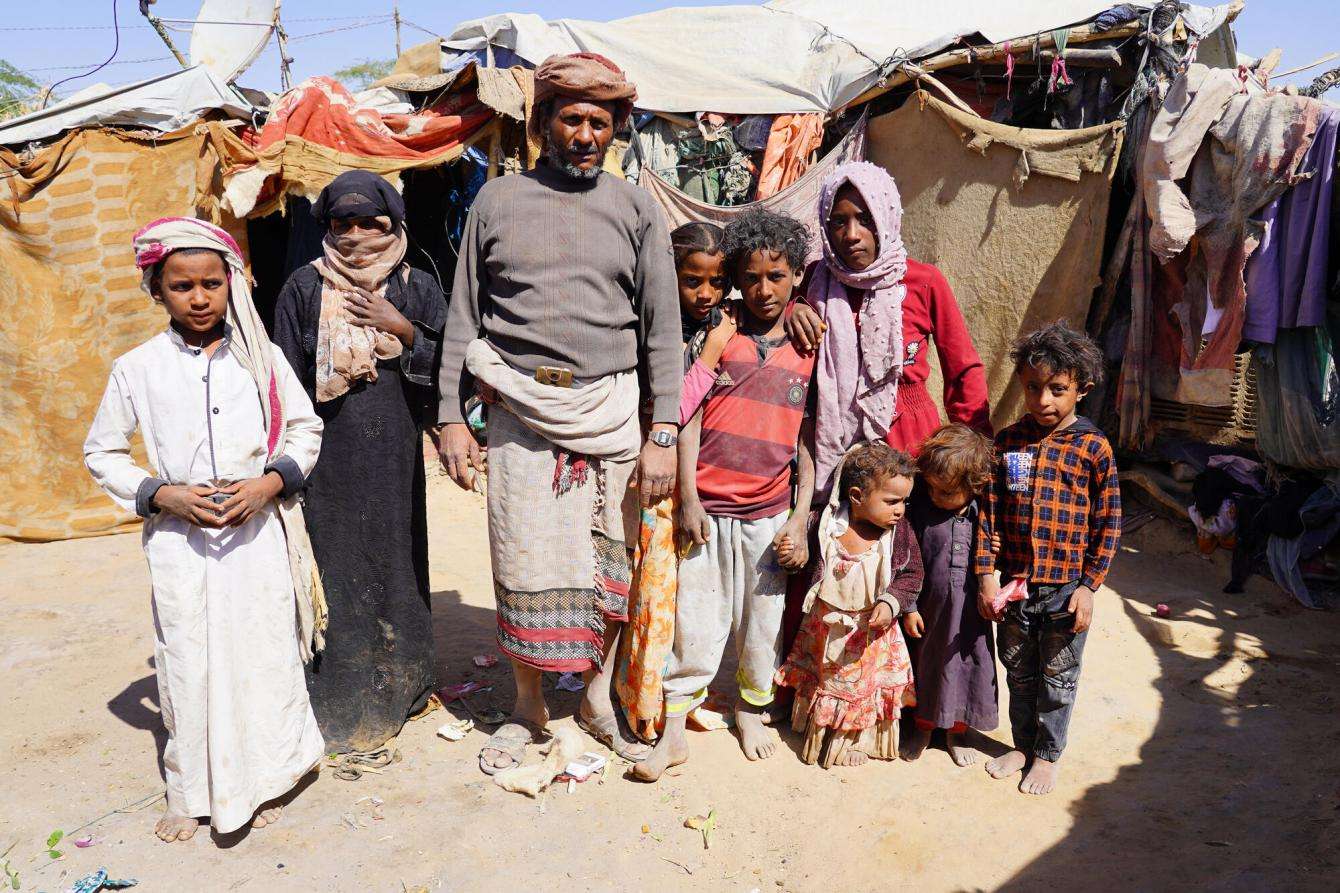
“Marib is in an emergency situation. Vulnerable groups such as displaced people, migrants, and the Muhamasheen are severely affected by the multiple displacements that they have gone through and are surviving without even basic necessities, said MSF head of mission Elisabeth Bijtelaar. “Aid organizations were simply not ready for displacement on this scale. The authorities, too, despite their efforts, have a challenge to deal with such large influx of IDPs. The conflict in Marib is unlikely to end soon. We fear more displacement, resulting in more needs. As a humanitarian community, we need to act to address the current needs, while thinking ahead and preparing for a possible increase of needs in the near future.”
“Marib is a classic example of what the people of Yemen are going through. As the governorate makes headlines because of the security incidents and frontlines, we must not forget that the whole country is suffering from consequences of the long-standing war.”
